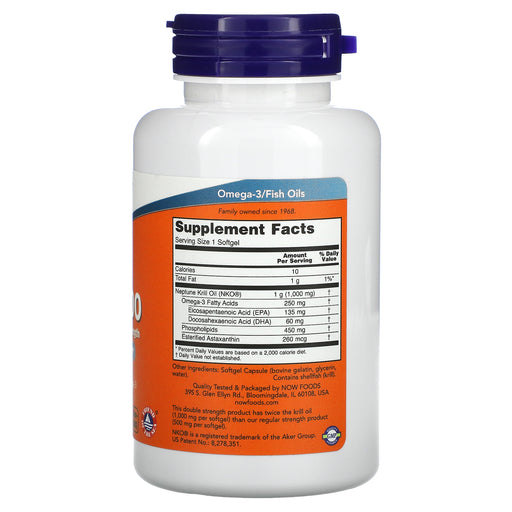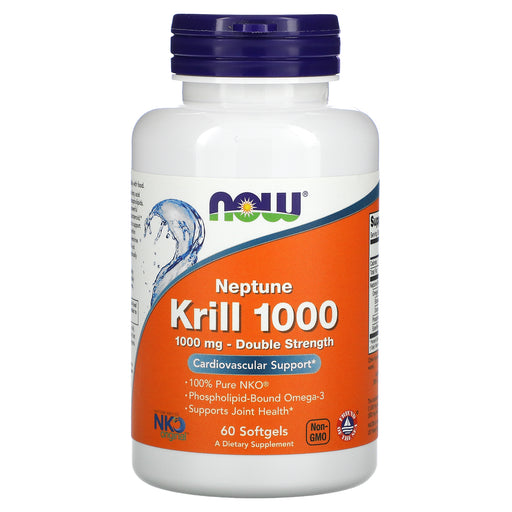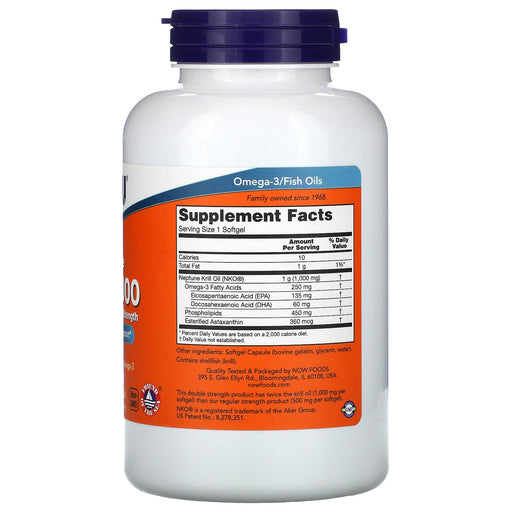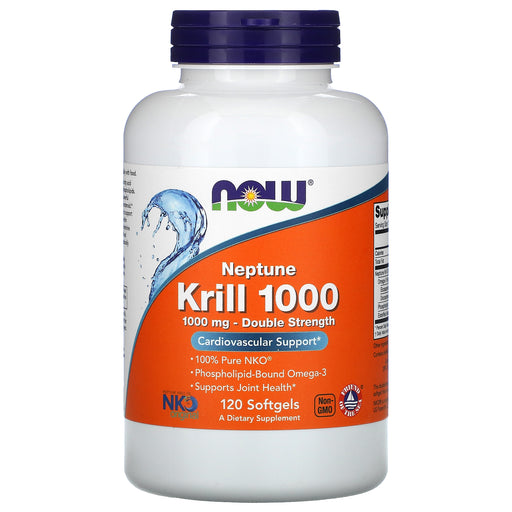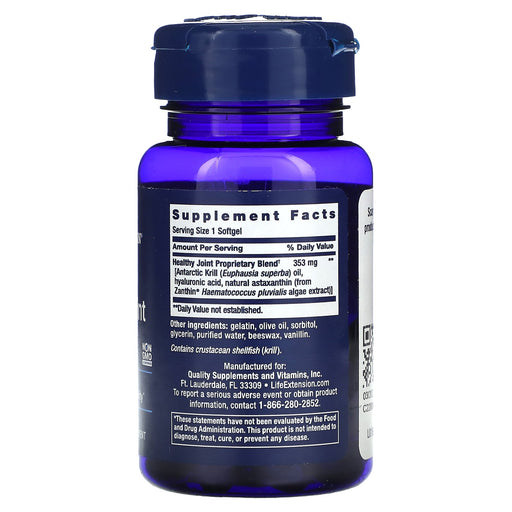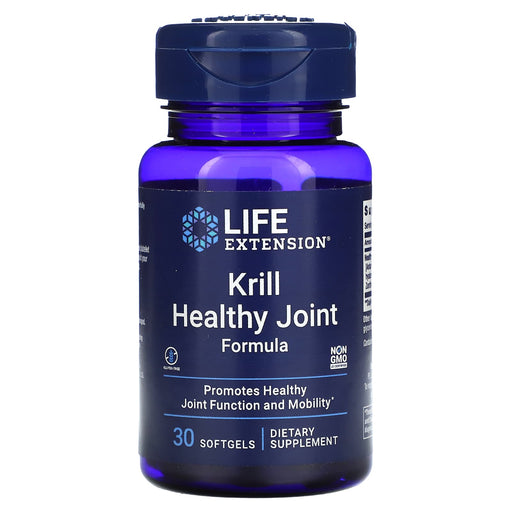
Experience the Omega-3 Powerhouse: Krill Oil for Heart, Brain, and Joint Health
In the world of natural health supplements, krill oil has emerged as a potent and promising source of omega-3 fatty acids, offering a wide range of potential benefits for cardiovascular health, brain function, and joint mobility. Derived from tiny, shrimp-like crustaceans found in the pristine waters of the Antarctic Ocean, krill oil is a unique and bioavailable alternative to traditional fish oil supplements, providing a sustainable and highly effective way to incorporate essential omega-3s into your daily wellness routine.
The Unique Advantages of Krill Oil
Krill oil stands out from other omega-3 supplements due to its distinct composition and bioavailability. Some of the key advantages of krill oil include:
- Superior Absorption: The omega-3 fatty acids in krill oil are primarily bound to phospholipids, which are more easily absorbed by the body compared to the triglyceride form found in fish oil, leading to higher bioavailability and more efficient utilization.
- Astaxanthin Content: Krill oil naturally contains astaxanthin, a potent antioxidant that gives the oil its distinctive red color. Astaxanthin helps to protect the delicate omega-3 fatty acids from oxidation and provides additional antioxidant support for the body.
- Sustainable Sourcing: Krill are harvested from the clean, unpolluted waters of the Antarctic Ocean, far from industrial contaminants. The krill fishery is carefully managed to ensure long-term sustainability and minimal impact on the marine ecosystem.
- No Fishy Aftertaste: Unlike some fish oil supplements, krill oil does not typically cause a fishy aftertaste or burps, making it a more palatable option for those who are sensitive to the taste or odor of fish oil.
- Synergistic Nutrients: In addition to omega-3 fatty acids and astaxanthin, krill oil also contains choline, a nutrient that supports brain health and liver function, and vitamin A, which is important for immune function, vision, and skin health.
The Science-Backed Benefits of Krill Oil
Numerous studies have explored the potential health benefits of krill oil supplementation, revealing its wide-ranging effects on various systems and functions in the body. Some of the most well-established benefits of krill oil include:
- Cardiovascular Support: The omega-3 fatty acids in krill oil, particularly EPA and DHA, have been shown to support heart health by promoting healthy cholesterol levels, reducing inflammation, and supporting healthy blood pressure.
- Brain Function: DHA, one of the primary omega-3s in krill oil, is a crucial component of brain cell membranes and plays a vital role in cognitive function, memory, and mood. Krill oil supplementation may help to support brain health and protect against age-related cognitive decline.
- Joint Health: The anti-inflammatory properties of omega-3 fatty acids, combined with the antioxidant effects of astaxanthin, make krill oil a promising option for supporting joint health and mobility, particularly in individuals with rheumatoid arthritis or osteoarthritis.
- Women's Health: Some studies suggest that krill oil may be particularly beneficial for women's health, helping to reduce symptoms of premenstrual syndrome (PMS) and dysmenorrhea (menstrual cramps) and supporting overall reproductive health.
- Eye Health: The omega-3 fatty acids and antioxidants in krill oil may help to protect against age-related eye conditions, such as macular degeneration and dry eye syndrome, by reducing inflammation and oxidative stress in the eye tissues.
Choosing a High-Quality Krill Oil Supplement
When selecting a krill oil supplement, it's essential to choose a high-quality product from a reputable brand. Look for supplements that:
- Are sourced from pure, sustainable krill populations in the Antarctic Ocean
- Undergo rigorous testing for purity, potency, and contaminants
- Provide a standardized amount of omega-3 fatty acids, particularly EPA and DHA
- Are manufactured by trusted companies with a commitment to quality and transparency
- Are third-party tested for quality and purity
It's also important to consult with a healthcare professional before starting any new supplement regimen, especially if you have a pre-existing health condition, are taking medications, or are pregnant or breastfeeding.
Related Vitamins and Supplements
While krill oil is a potent source of omega-3 fatty acids and antioxidants, certain vitamins and supplements can complement its benefits and support overall health and well-being. Some relevant options to consider alongside krill oil include:
- Vitamin D: This fat-soluble vitamin supports immune function, bone health, and cardiovascular health, and may work synergistically with omega-3 fatty acids to promote overall wellness.
- Curcumin: This potent anti-inflammatory compound found in turmeric can complement the anti-inflammatory effects of krill oil and provide additional support for joint health, brain function, and overall well-being.
- Coenzyme Q10 (CoQ10): This antioxidant compound supports cellular energy production and cardiovascular health, and may work synergistically with the omega-3s and astaxanthin in krill oil to promote optimal heart function.
- B-Complex Vitamins: These essential vitamins support brain health, energy production, and cardiovascular function, making them a valuable addition to a krill oil supplementation regimen.
Experience the Transformative Power of Krill Oil
At Health Orchard, we are dedicated to providing our customers with the highest quality krill oil supplements to support heart, brain, and joint health. Our carefully curated selection features krill oil products from trusted brands, sourced from pristine Antarctic waters and processed with strict quality control measures to ensure purity, potency, and sustainability.
Whether you're looking to support cardiovascular health, enhance cognitive function, promote joint mobility, or simply optimize your overall well-being, our krill oil supplement collection has the perfect product to meet your needs.
Witness the omega-3 powerhouse and experience the transformative benefits of krill oil for yourself. Browse our selection today and take the first step towards harnessing the potent, bioavailable goodness of this remarkable marine superfood for your optimal health and vitality.
Frequently Asked Questions about Krill Oil
1. What is krill oil supplement good for?
Krill oil supplements are rich in omega-3 fatty acids, particularly EPA and DHA, which offer several potential health benefits:
- Heart health: Omega-3s may help support healthy cholesterol levels, reduce inflammation, and promote overall cardiovascular health
- Brain function: DHA is essential for brain development and function, and may help support cognitive health and mood
- Joint health: The anti-inflammatory properties of omega-3s may help reduce joint pain and stiffness associated with conditions like rheumatoid arthritis
- Eye health: Omega-3s, particularly DHA, are concentrated in the retina and may help support healthy vision
- Skin health: The fatty acids in krill oil may help support skin hydration and reduce inflammation, promoting a healthy complexion
2. Who should not take krill oil?
While krill oil supplements are generally considered safe for most people, there are some individuals who should avoid them or consult with a healthcare professional before use:
- People with shellfish allergies: Krill are small crustaceans, and those with shellfish allergies may also be allergic to krill oil
- Individuals taking blood thinners: Omega-3s can have a mild blood-thinning effect and may interact with anticoagulant medications like warfarin. Consult with a healthcare professional before combining krill oil with blood thinners
- People with bleeding disorders: The blood-thinning properties of omega-3s may increase the risk of bleeding in individuals with pre-existing bleeding disorders
If you have any pre-existing health conditions or are taking medications, it's always best to consult with a healthcare professional before starting a new supplement regimen.
3. Which is better, krill oil or fish oil?
Both krill oil and fish oil are rich sources of omega-3 fatty acids, particularly EPA and DHA, and offer similar potential health benefits. However, there are some differences between the two:
- Absorption: Krill oil omega-3s are attached to phospholipids, which may enhance their absorption and bioavailability compared to the triglyceride form found in most fish oils
- Astaxanthin content: Krill oil naturally contains astaxanthin, a potent antioxidant that may provide additional anti-inflammatory and protective benefits. Fish oil does not typically contain astaxanthin
Ultimately, both krill oil and fish oil can be effective sources of omega-3s, and the choice between the two may come down to personal preference, budget, and sustainability concerns. Consult with a healthcare professional to determine which option is best for your individual needs.
4. How much krill oil should I take daily?
The optimal daily dosage of krill oil may vary depending on individual health needs and goals. However, most studies have used doses ranging from 500mg to 4,000mg of krill oil per day. A typical recommendation is to aim for a combined total of 250-500mg of EPA and DHA per day, which can usually be achieved with 1-2 standard krill oil capsules.
When choosing a krill oil supplement, consider the following:
- EPA and DHA content: Look for supplements that clearly list the amounts of EPA and DHA per serving
- Quality and purity: Choose reputable brands that follow good manufacturing practices and third-party testing for purity and potency
- Sustainability: Look for krill oil supplements that are sourced from sustainable fisheries and use eco-friendly harvesting practices
It's essential to follow the recommended dosage instructions on the product label and not exceed the suggested daily intake unless directed by a healthcare professional.
5. When should I take krill oil, morning or night?
The timing of krill oil supplementation is generally a matter of personal preference, as there is no conclusive evidence to suggest that taking krill oil in the morning or at night is more beneficial. However, some factors to consider when deciding when to take krill oil include:
- Consistency: The most important aspect of taking krill oil is consistency. Choose a time that works best for your daily routine and stick to it to ensure regular intake
- Meal timing: Some people may prefer to take krill oil with a meal that contains fat, as this may enhance the absorption of the omega-3 fatty acids. If you experience digestive discomfort when taking krill oil on an empty stomach, taking it with food may help alleviate this issue
- Personal preference: Some individuals may find that taking krill oil in the morning helps them remember to take it consistently, while others may prefer taking it at night as part of their bedtime routine
6. Is krill oil good for your liver?
Krill oil, like other omega-3 fatty acid supplements, may have potential benefits for liver health. Some studies suggest that omega-3s may help support liver function and protect against certain liver conditions:
- Fatty liver disease: Some research indicates that omega-3s may help reduce liver fat accumulation and inflammation associated with non-alcoholic fatty liver disease (NAFLD)
- Liver damage: Omega-3s may help protect the liver from damage caused by toxins, drugs, or other harmful substances
- Liver enzymes: Some studies have found that omega-3 supplementation may help improve liver enzyme levels, which are markers of liver function and health
- Antioxidant protection: The astaxanthin content in krill oil is a potent antioxidant that may help protect liver cells from oxidative stress and damage
Additionally, individuals with pre-existing liver conditions or those taking medications should consult with a healthcare professional before starting any new supplement regimen, including krill oil, to ensure safety and appropriateness for their specific needs.


